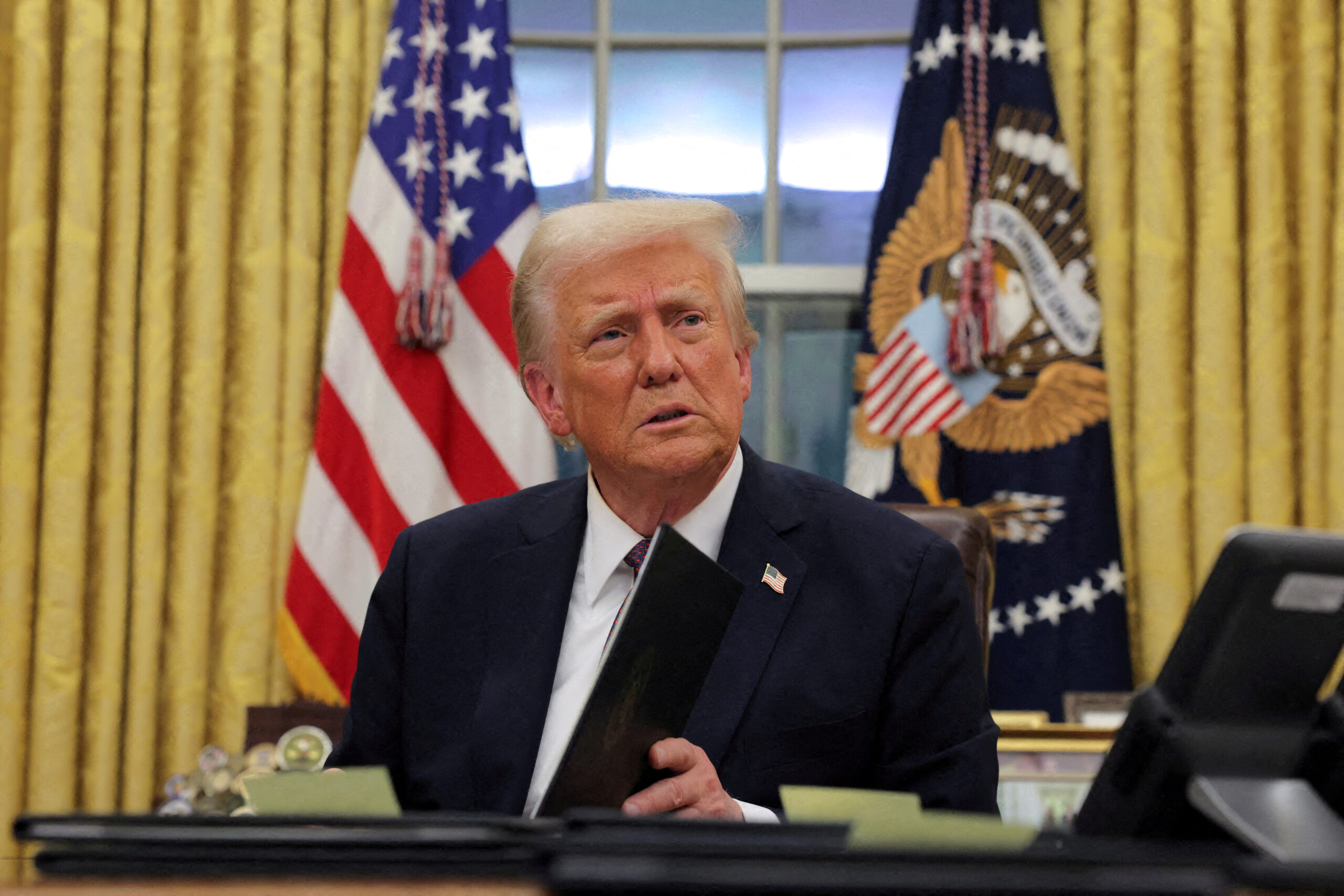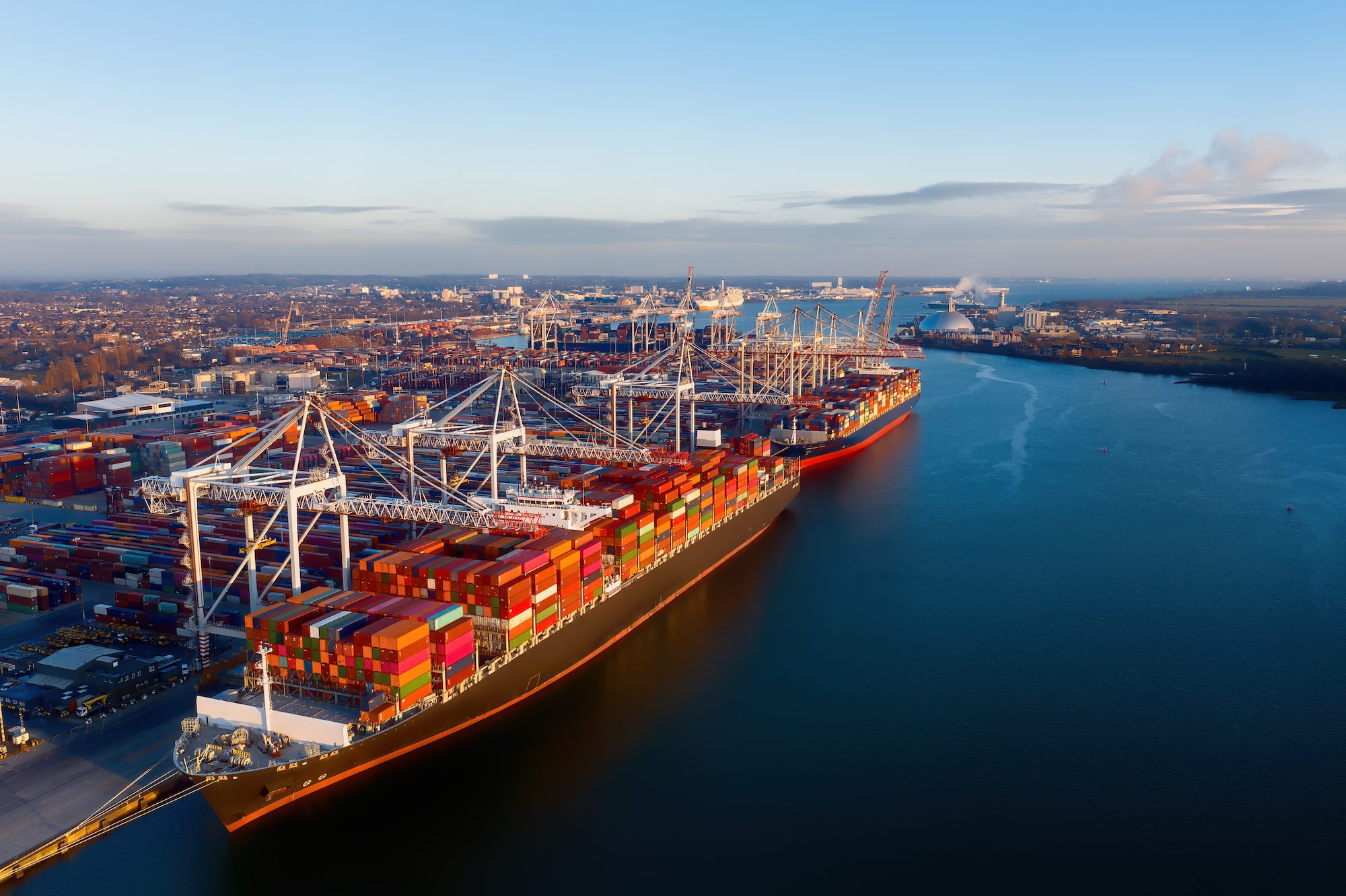By Grant Smith and Salma El Wardany
Jan 24, 2025 (Bloomberg) –US President Donald Trump has raised the stakes for a meeting of an OPEC+ ministerial panel next month, with his call for the group to lower oil prices.
Just days into his second term, Trump told world leaders gathered in Davos, Switzerland that he would urge Saudi Arabia and its partners to “bring down the cost of oil.”
Delegates from the group said they would stick to their existing plans, but Trump’s intervention at the World Economic Forum on Thursday adds significance to what had been looking like a routine committee meeting to review policy on Feb. 3.
The Organization of Petroleum Exporting Countries and its allies have been withholding oil supplies for more two years to shore up prices, and have repeatedly delayed a revival in their output. They currently intend to gradually start restoring barrels in monthly tranches of about 120,000 barrels a day from April.
Neither Riyadh nor OPEC’s Vienna-based secretariat gave any indication that they would expedite these plans in response to Trump’s demands. Delegates from the alliance, who asked not to be identified, said they see no reason to deviate from their current policy. Faltering fuel demand in China and plentiful new supplies from across the Americas mean there is still the risk of an oil surplus, they said.
Oil prices are trading near $78 a barrel in London, up from the start of the year but still too low for many members of the cartel to cover government spending.
“OPEC+ seemingly has no appetite” to “put an additional barrels on the market,” said Helima Croft, head of commodity strategy at RBC Capital Markets LLC.
This is a modal window.
The media could not be loaded, either because the server or network failed or because the format is not supported.
Other US polices could upend this outlook.
Sweeping new US sanctions on Russia — another OPEC+ member — announced in the final days of the Biden administration has spurred its customers in Asia to scour for alternative supplies. Furthermore, Trump has threatened to renew a campaign of “maximum pressure” to rein in nuclear activity by Iran, a policy that crushed the Islamic Republic’s crude exports during his first term.
“So far we’re seeing no indications from OPEC that they are willing to backstop any sanctions on Iran, Venezuela or Russia,” Natasha Kaneva, head of global commodities strategy at JPMorgan Chase & Co., said in a Bloomberg television interview.
OPEC+’s apparent inclination to sit tight may be guided in large part by their previous experiences with the president.
Trump — a fierce critic of the cartel for decades before his political career — often berated OPEC+ with social media posts during his first term, accusing the producers of keeping prices too high.
Skepticism in Riyadh toward the president emerged in 2018, when his administration pushed Arab exporters in the Gulf to bolster supplies in anticipation of draconian sanctions on Iran, only to soften its crackdown against Tehran at the last moment.
A further twist in the relationship arrived in 2020, when crashing oil prices during the Covid-19 crisis threatened to crush the American petroleum industry. Trump, the lifelong OPEC scourge, helped broker a reconciliation between Riyadh and Moscow, and ultimately usher in OPEC+’s biggest ever production cut.
The Biden administration’s use of strategic oil reserves after Russia’s 2022 invasion of Ukraine was also viewed critically.
“We don’t see OPEC+ making any policy changes in response to these comments, especially at these price levels,” said Richard Bronze, head of geopolitics at consultant Energy Aspects Ltd. “Memories of 2018 and 2022 are still too strong, so they will need to see sustained tightness before agreeing to add supply.”
There are other complications to consider, not least Trump’s pledge that his administration will encourage American oil companies to “drill, baby, drill” and ensure US dominance of the global energy system.
Saudi Arabia’s Crown Prince Mohammed Bin Salman has also promised to expand investments and trade with the US by $600 billion, and Trump said he would pressure the crown prince to raise that figure to $1 trillion.
“It is challenging to see how a significant drop in oil prices will yield a massive increase in US output or hundreds of billions in foreign direct investment from key oil-producing states,” said Croft.
© 2025 Bloomberg L.P.

 Join The Club
Join The Club











